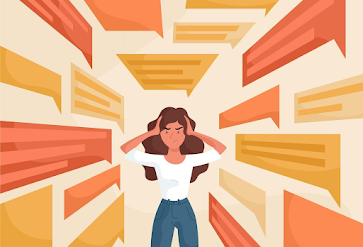Misinformation is defined as false information being spread with the intent of misleading readers or consumers. Misinformation happens all around us, and it happens often. Joe Rogan is an American podcaster who has been accused of spreading misinformation numerous times regarding COVID-19. Attempts were even made to shut his podcast down so that he could no longer publish new episodes of his show. Misinformation is different from disinformation in the sense that disinformation is the distribution of manipulated facts or information.
The fact of the matter is that misinformation is so common and so widespread, that it is likely that we have all contributed to it at one time or another. It isn't unusual for people to read articles and take in their news from the same sources, because they know that source will align with their existing beliefs. Misinformation is spread when people ignore new information that contradicts the belief that they already hold. Digital reading has made absorbing news easier, but it has also made readers lazier. When we don't check our sources, we share articles that are biased and only fit one viewpoint.
Misinformation affects us every time that it is spread. For starters, misinformation only shows one side of a story. There's always danger in spreading information when you don't know all parts of the story, and misinformation guarantees it. Misinformation affects students academically. The internet has made finding research and scholarly sources much easier, however the internet allows practically anyone to put information on the internet. There's nothing worse than forgetting to check a potential source, using it in a project, and then finding out that the author of the article had no idea what he/she was talking about. This is why checking sources is so important, because it prevents the spread of misinformation.
There are a few ways to avoid the spread of misinformation. As social media users, we should always be mindful of what we're sharing on our profile. I am notoriously bad at sharing Instagram posts on my Instagram story without reading the caption first or looking into the context of the photo/video. I can't tell you how many times I've shared a selfie that Chris Evans posted without realizing that it was a political rant. Social media users should never share a post without fact checking or without being fully understanding of the situation. It's always a good idea to research your opposing view on an event, because then you have knowledge of the other side of the story. If you aren't fully educated on a topic, event, or story -- then do not share anything about it.





No comments:
Post a Comment